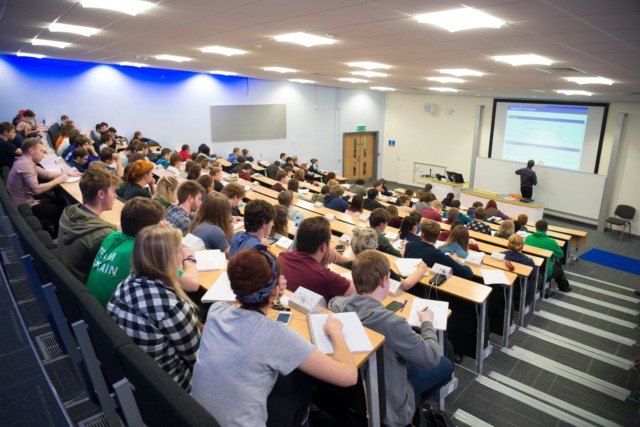UNIVERSITIES are being urged to be “flexible” with students who flunk their grades due to coronavirus.
A-Level students get their results back this week but their grades will be based on calculated results from teachers and the moderated by exam boards.
But many feel they will do worse than they would have done had they been able to sit exams cancelled by the pandemic.
As a result the Universities Minister Michelle Donelan has urged uni to hold places for students who are appealing their grades.
She said: “Nobody should have to put their future on hold because of this virus. That is why I am urging universities to be as flexible as possible in their admissions and to hold places for those whose grades are being appealed.
“Our ambition for students this year is no different to any other year and it is in everybody’s interest to see them progress.”
But Education Secretary Gavin Williamson said he was confident the exams moderator Ofqual was grading fairly.
‘GRADED FAIRLY’
He said: “I’m confident the system Ofqual has put in place is fundamentall a fair one, that will award the vast majority of students a calculated grade that genuinely reflects the grade they would have achieved.
“Provisional data published by Ofqual suggests that the number of As and A*s being awarded will increase compared to last year and moderation has ensured students from all backgrounds have been treated fairly.
“We know that, without exams, even the best system is not perfect. That is why I welcome the fact that Ofqual has introduced a robust appeal system, so every single student can be treated fairly – and today we are asking universities to do their part to ensure every young person can progress to the destination they deserve.”
It comes as a study by UCL claims that predicting A-Level grades is a “near-impossible task” and needs an overhaul.
In a study by academics from UCL Centre for Education Policy & Equalising Opportunities (CEPEO) and Oxford Brookes Business School studied data from 238,898 pupils’ GCSE performance to see whether they could accurately predict their subsequent A-level results.
They found that even by removing any opportunity for bias – and running additional checks on pupils’ gender, ethnicity and socioeconomic status – they could only predict one in four pupils’ best three A-levels correctly.
The paper also shows that high-achieving comprehensive school pupils are more likely to be under-predicted compared to their grammar and private school counterparts.
Among high achievers, where under-prediction is most common, the team found 23 per cent of comprehensive school pupils were under-predicted by two or more grades compared to just 11 per cent of grammar and private school pupils.
Professor Lindsey Macmillan (UCL Institute of Education), said: “This research raises the question of why we use predicted grades at such a crucial part of our education system.
“This isn’t teachers’ fault – it’s a near-impossible task. Most worryingly there are implications for equity, as pupils in comprehensives are harder to predict.”
GOT a story? RING HOAR on 0207 782 4104 or WHATSAPP on 07423720250 or EMAIL [email protected]
Did you miss our previous article…
https://www.hellofaread.com/politics/boris-johnson-launches-passionate-defence-of-the-union-ahead-of-scottish-staycation/








